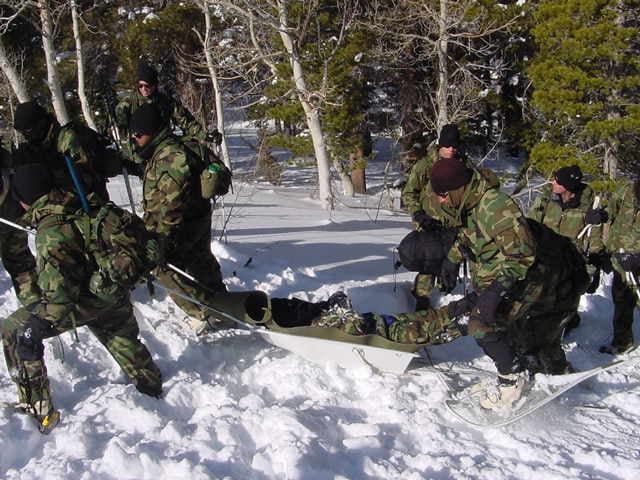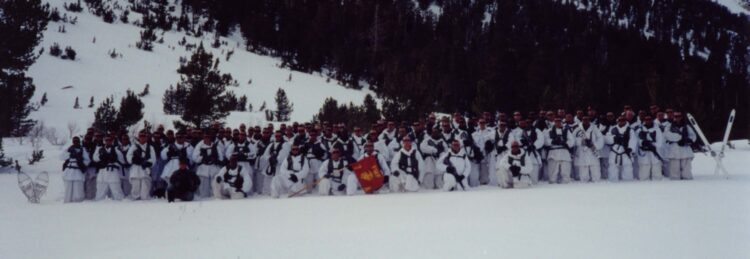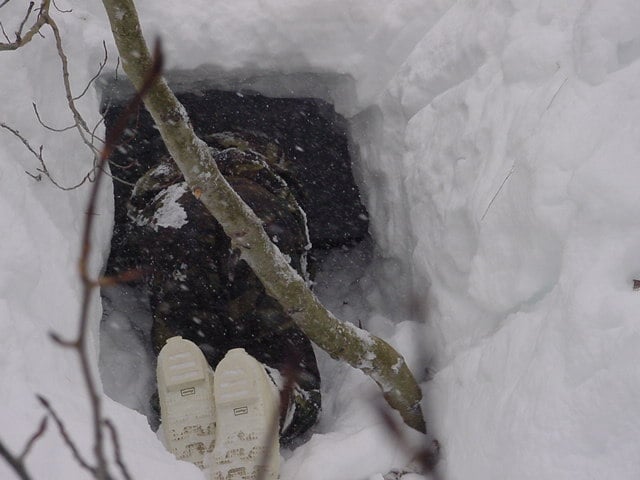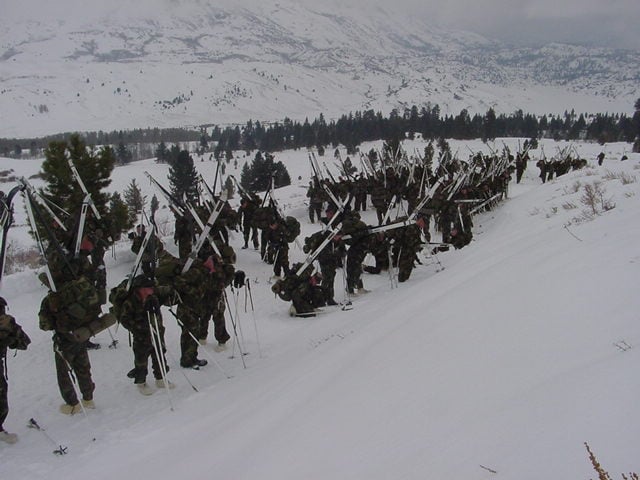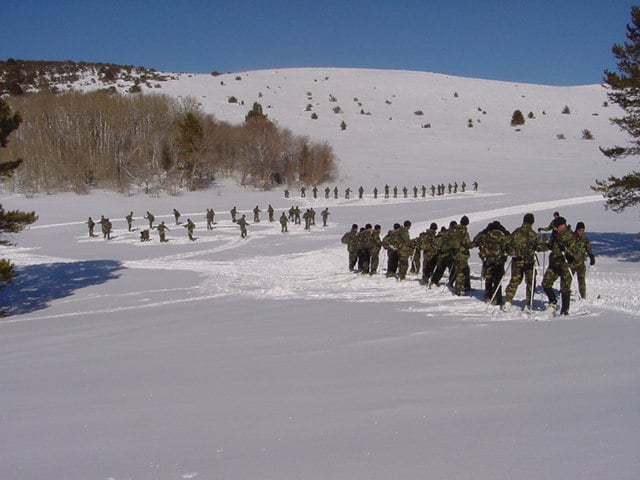When I checked into 1/7 in January of 2001, they were preparing to go to winter mountain warfare training at Bridgeport California. The Marine Corps Mountain Warfare Training Center (MCMWTC) at Bridgeport, California forges young men into hardened warriors. Many Marines just call it “Bridgeport.”
During February of 2001 1/7 (about 700 Marines and sailors) conducted Winter Warfare training for about 30 days. Winter warfare training may be the most difficult of environments. We were not just fighting the enemy; we were fighting physical exhaustion and the elements. We were always too hot or too cold – always.
When skiing and snowshoeing, we would heat up then we would stop and begin to freeze immediately. We only spent a few days in the base camp. Must of the 30 days were spent up on the mountain. The hardest thing for me was the humps (hiking) up the mountain with too much gear. I will never forget humping up the mountain for the first mountain operation and thinking, “I am too old for this crap.” I told myself to retire as soon as possible. Winter Bridgeport will break you if you are not cautious. The only thing that kept me going was the Marines. They were miserable too.
I tell this story because the very young Marines at winter training would become our leaders during the invasion of Iraq two years later. Winter outdoor living is extremely difficult on the body and mind, but, what does not kill you, makes you stronger – at least that is the saying.
The hikes (humps) were extremely rough; too much weight and the mountains were too tall. Skiing was another difficult task because most Marines had never skied in their lives, so they learned on the fly; or I should say, from fall to painful fall. Snow shoeing was a little bit better than skiing, but very exerting. Our ski raids were interesting, but we learned at the rapid rate.
Bridgeport is an amazing place and it was essential into making all around warriors. Bottom line: Bridgeport may harden a unit better than any other training area/type.
Animal 8 Out
*The views and opinions expressed on this website are solely those of the original authors and contributors. These views and opinions do not necessarily represent those of Spotter Up Magazine, the administrative staff, and/or any/all contributors to this site.

